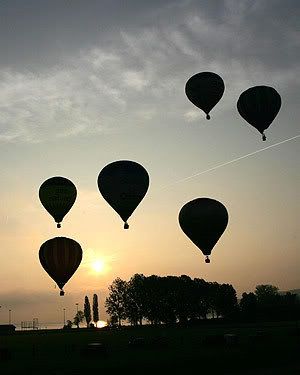 I am reading a book at the moment that has me deeply worried. Not because it is in itself correct in its assertions, I personally do not believe that it is; but because it is unable to see the other point of view, and in so not doing, is perpetuating the same dangerous attitudes that it is so intolerant of in others.
I am reading a book at the moment that has me deeply worried. Not because it is in itself correct in its assertions, I personally do not believe that it is; but because it is unable to see the other point of view, and in so not doing, is perpetuating the same dangerous attitudes that it is so intolerant of in others.The book is by Sam Harris, its title "The end of Faith: Religion, Terror, and the Future of Reason," and it rather unhelpfully and definitely sensationally quotes Richard Dawkins on the front cover, from the Guardian; "Read Sam Harris and wake up."
Now I have only reached page 36 and I accept I need to see how the argument unfolds, but I think I get the gist.
I think that the book gets off to a dodgy start by basing itself on some inaccurate assumptions. For a start Sam brings out the old hoary chestnut about most wars being the result of religious belief. I am not a historian, (in fact history O Level was the only exam I ever failed at school!), but I am told by historians whom I respect that this assumption is simply not true. I will be looking into this in some more depth.
Then he tells us that their is a fundamental intolerance between faiths - that only one faith is right, and of course we all believe that ours is that right one; that religious pluralism can only be a hoax. Isn't this what fervent atheists preach of their own beliefs?

He does accept that mostly we are spiritual beings and we find our spiritual sustenance in the dogma of different religions, but this, he tells us, is at a terrible price.
I will carry on reading Sam Harris. But I am also reading another book, (I usually have several on the go at any one time!) which I think Sam would do well to read himself. It is by Aidan Rankin, entitled "Many-Sided Wisdom; A New Politics of the Spirit." The essence of Rankin's book is drawn from ancient Jain wisdom, and reminds us that many different paths can all lead to the same spiritual truth, and there is a need for humility and respect between the followers of all such paths. This is a new political philosophy with ancient spiritual roots, and is called Anekant, literally meaning "many-sided." It logically leads to a position that the Jains call Jiva Daya: identification or sympathy with all creatures, not just our fellow humans. We are learning this lesson the hard way, as we see the terrible toll we are inflicting on the natural world through our hubris and our misguided supremacy.
As I write this there has been a terrible tragedy in Germany where many youngsters have been crushed to death at a festival. Today there was a church service in their memory, a service arranged out of a basic human need to find spiritual sustenance and support and hopefully some answers from religion, which many of us seek at such moments in our lives.
I will finish both books in due course. One thing is certain and that is the need by many of us for religion. No amount of angry discourse from atheists is going to alter that. We have to learn to live with our differences in whatever way we can, and that calls for Anekant, not angry atheistic protestations.
We have to stop arguing about right and wrong, black versus white, pluralism versus intolerance and fundamentalism. We should all have a common purpose, to save our planet for our children and grandchildren. The fundamentalist atheist does not help this cause. Or am I being naive?








































